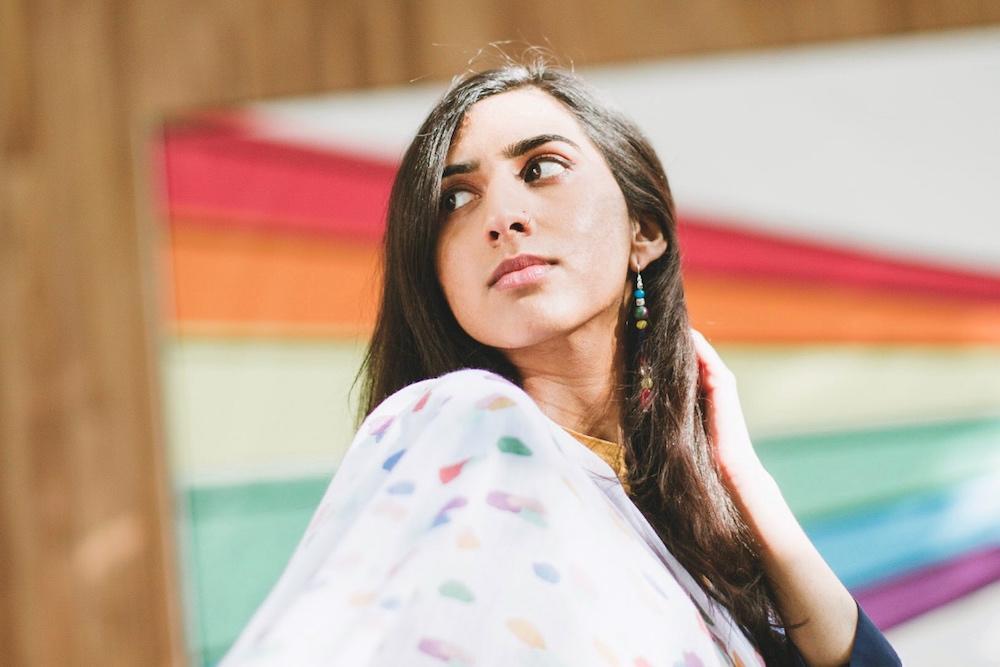
The moon sparkles brightly in the sky. You set your alarm to 4 a.m. instead of the usual 7 a.m. The only soundtrack of your life goes from Post Malone’s latest album to the sizzle of the deep fryer. You frequent the mosque more often, and you love the sense of community and warmth it brings. You notice that something inside of you is changing – and you like it. The spiritual awakening rises to your throat, and your heart fills with joy.
OR… you don’t know when Ramadan starts because well, the two masjids in your community that are 4 feet away from one another can’t seem to decide on a day. You miss your alarm and wake up five minutes before dawn to swallow a peanut and chug a glass of water. You tried no music for a week but then Spotify hit you with the email about Drake’s latest release and you succumbed. Every time you stand for prayer, a sudden wave of sleepiness envelops you. No matter how hard you try to feel…there is simply nothing. No spark, no tears, no softening of your cold, dead heart.
No matter how your Ramadan is going, it is, in fact, going. Realistically, your holy month has been a combination of the aforementioned scenarios, and that’s what makes it perfect: no matter how well or how poorly you’re doing, there is always going to be room for improvement.
[Read More:‘What it’s Like to be an Observant Muslim Who Struggles to Feel the Sweetness of Ramadan’]
Don’t think that just because Ramadan is more than halfway complete the chance to improve yourself is gone. The fact that you woke up this morning is enough to remind you that fresh starts are always possible… so don’t give up. There’s still a whole eleven days or so for you to replenish your soul. All you have to do is try, and God will reward it.
So now that you’ve decided that you want to try, you may be confused about what steps to take from here, but fear not because Brown Girl Magazine has the hook up with some Ramadan tips that will help keep you on track this holy month!
1. Scratch the Schedule
One of most common Ramadan goals is to finish reading the entire Quran. So naturally, when the month rolls around, we all make grand plans and are determined to finish it. We originally start the month with a color-coded google calendar set up that assigns x Quran page numbers per day…but then something comes up and we miss a day. And then we miss another day…and the next thing you know, you have to finish reading the Quran in 3 hours to catch up to your schedule. This Ramadan, scratch the schedule if it causes you anxiety and deters you from starting the Quran at all and don’t worry about fulfilling the page quota as much as you do understanding the verses you are reading.
2. Pray Five Times a Day
To some, this may seem like a no-brainer but I promise that for others it may be a wake-up call. The five daily prayers are compulsory upon Muslims all the time, but especially during Ramadan. I know it can be hard for those working and taking classes throughout the summer to complete them, but no sincere action ever goes unrewarded by God, so try your very best!
3. Eat Light
There are very few feelings greater than that first pakora bite after a long and grueling fast…but very few feelings worse than the stomach pain that follows once your iftaar plate is in its third trimester. I promise you deserve all the oily and greasy goodness at iftaar, but take it all in moderation. Allah swt says in the Holy Quran, “And eat and drink but waste not by extravagance, certainly He (Allâh) likes not Al-Musrifûn (those who waste by extravagance)” [al-A‘raaf 7:31]. This verse proves that as Muslims we should refrain from gluttony and be aware of the foods we put in our body.
4. Squeeze a Workout Routine in There Somewhere
I know, I know. I’m not asking you to be that one person we all know who posts excessive post taraweeh gym snapchats on their story every night. Although working out at the gym makes the most sense, it’s totally understandable if you’re a twenty-year-old brown girl and your parents don’t let you out of the house at 2 a.m. to lift weights. Instead, try alternative methods like working out to free YouTube videos that require little to no equipment. Heck, even dance along to your favorite Bollywood songs—–I MEAN, NASHEEDS—– for as little as thirty minutes a day.
5. Do this #RamadanChallenge
Earlier last week, a Facebook friend of mine named Omar Salim shared a status challenging himself and others to delay their dinner meal until they’ve provided someone in need with a meal of equal or better quality than the meal they were about to have. Salim further explains in his post,
“Whether that means driving around your neighborhood until you find someone, or visiting one of your local homeless shelters before you can eat that samosa, let us take advantage of this Ramadan and empathize with those who don’t have.”
Through the iftaar parties and Ramadan Instagram posts with yet another date pun, it can be hard to remember what Ramadan is truly about: empathy for those who haven’t been as privileged and blessed as ourselves. So if you have the resources to do so, I urge you to participate in the challenge and reinforce the importance of giving to yourself and those around you.
With that being said, that’s our handy-dandy Ramadan tip list! Obviously, there’s a lot more that can be added, so we challenge you to comment some of your bucket list items because after all…it is the month of sharing.




